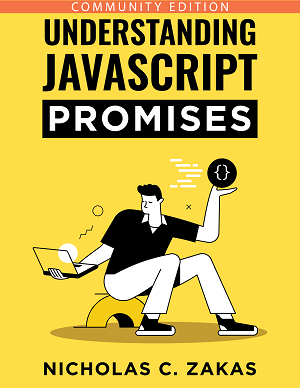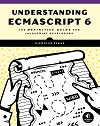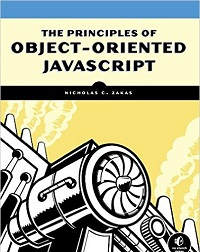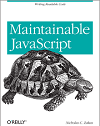JavaScript block-level variables
JavaScript developers have long bemoaned the fact that there’s no such thing as block-level variables. Block-level variables are variables that exist only within the context of a block statement (such as if) and then are destroyed immediately after the statement is finished executing. You can write code that looks like it should create block-level variables, such as:
for (var i=0; i < 10; i++){
//body
}
alert(i); //10In this example, it looks like the variable i is a block-level variable to the for loop (and indeed, this would be the case in other languages such as Java). The variable, however, gets created in the containing scope so it is still accessible outside of the for loop as indicated by the alert. This code is the functional equivalent of the following:
var i=0;
for (i=0; i < 10; i++){
//body
}
alert(i); //10This is why experts prefer that variables all be defined at the beginning of functions so as to eliminate the illusion of block-level variables.
As it turns out, there is one case where you effectively create block-level variables. The with statement actually creates another scope in which variables exist. The technical details of how this works are unimportant for this conversation, but suffice to say that it augments the variables that are available during the execution of the with statement with the properties of a given object. For example:
with(location){
alert(href);
}In this code, the location object is passed into the with statement, which automatically makes every property of location available as variables inside. Accessing href inside of the with block is the equivalent of accessing location.href in all ways. After the with block has finished executing, the href variable is no longer available (although you can still access location.href). In effect, the with statement has block-level scoping. The question is, how to use it in a practical way.
The whole idea of block-level variables is to define them for limited use and then trust that they have been destroyed. It would be nice to declare a bunch of variables for use within a block and then know that they can no longer be accessed later. This can effectively be done using with and an object literal:
//define two variables: foo and bar
with({ foo: 1, bar: 2 }){
alert(foo); //1
alert(bar); //2
}
alert(foo); //Error!This code creates an object literal with two properties, foo and bar and passes that into the with statement. Doing so creates two variables inside of the statement, foo and bar, which correspond to the properties on the object literal. These variables are destroyed when the with block is finished executing. Since the object literal itself is never stored in a variable, it is destroyed once the with block finishes executing as well, so there is no longer any way to access any of this information.
I’m not sure that this is practical for use repeatedly, as adding another scope also incurs a performance hit for variable lookup, but it’s an interesting use of an underappreciated part of the language.




